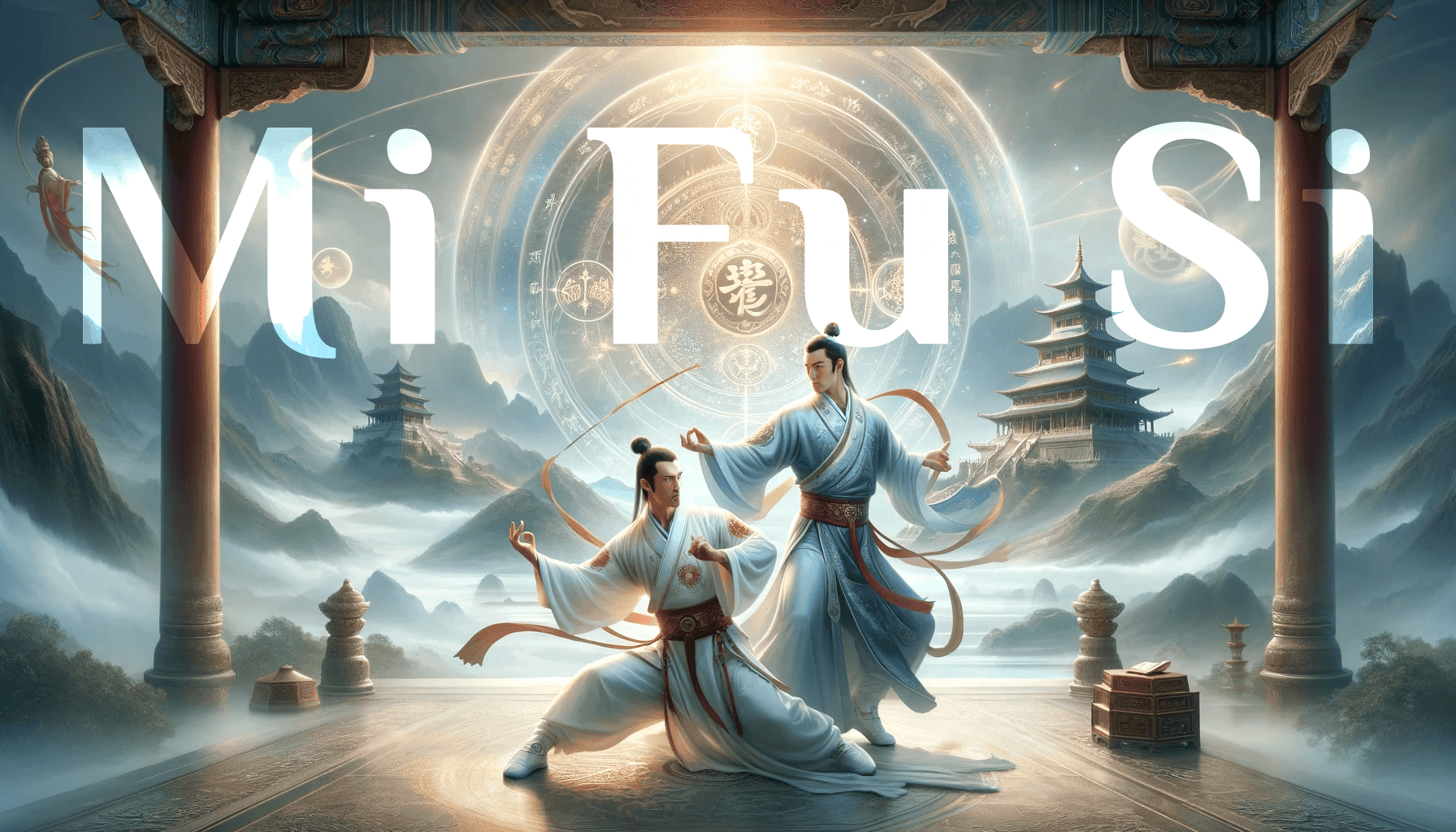Translated from “Truyền Tâm Ấn” by Horangri.
The Secret Seal transmission – Buddha Kungfu vs Buddha Literature
The widespread practice of Transmitting the Secret Seal aligns with Divine Will, serving as both a method of teaching and learning for disciples. After a period of dedicated practice, disciples receive the Celestial Scroll from their sect, which is the initial step towards practicing the ritual of passing on the Secret Seal to others—merging action with learning. However, some disciples misconstrue receiving the Celestial Scroll as completing their training, thinking it entitles them to establish their own sects or become masters of Esoteric Buddhism. In reality, the Celestial Scroll is merely the first license in a program aimed at achieving higher spiritual states such as those of Gods, Saints, Immortals, and Buddhas. It allows practitioners to gain experience in spreading the teachings and building merit.
To ascend to the status of a Master within Esoteric Buddhism, one must master a comprehensive range of metaphysical principles and receive recognition from their Patriarch, Master, and the metaphysical realm through various stages of spiritual development, merit accumulation, and fulfillment of virtuous vows. Masters must fully understand the doctrines and receive the transmission of the Seal Dharma from their Patriarch or Master. This endows them with the responsibility to guide the sect in accordance with Divine Intentions and execute celestial mandates.
How do Buddha’s Literature and Buddha’s Kung Fu differ?
Mr. T. The head of a meditation sect held a misunderstanding of mysticism, believing Buddha’s Literature practitioners to be superior to those of Buddha’s Kung Fu. He claimed that only those dedicated to Buddha’s Literature could transcend the cycle of birth and death, a feat unattainable by followers of Buddha’s Kung Fu. Consequently, he aligned his sect with Buddha’s Literature, relegating Esoteric Buddhism to the realm of Buddha’s Kung Fu based solely on his limited exposure to its martial arts practices, overlooking its broader spiritual disciplines. These misconceptions might have led to divine admonishments, manifesting as inexplicable occurrences such as invisible water splashes, ghostly pursuits, or deceit by his disciples.
During a conference within the sect, Trần Trường, one of the disciples, declared himself the Supreme God and demanded others demonstrate their reverence by crawling between his legs. Remarkably, Mr. T along with several elder disciples, were reported to have acquiesced. These narratives were shared with me by members of the sect and are not based on personal observation.
Practitioners encountering terrifying supernatural phenomena or suffering mystical retribution should see these as signs of straying from the correct path. However, many practitioners often claim a high level of spiritual attainment despite having shallow doctrinal knowledge and limited practice experience.
The debate over whether Buddha’s Literature is superior to Buddha’s Kung Fu originates from an incident involving one of the disciples of the sect who became possessed, and Mr. T. unable to help, sought assistance from an elder master, noting that the elder was skilled in Buddha’s Kung Fu. This disciple flew from Canada to Colorado to meet the elder master. After their brief encounter, the disciple was restored to normalcy.
This raises the question: Is Buddha’s Literature superior to Buddha’s Kung Fu? In truth, Esoteric Buddhism does not distinguish between Buddha’s Literature and Buddha’s Kung Fu.
In the worldly system, the military is categorized under martial aspects, while other sectors are considered part of the scholarly or civil aspects. A nation cannot exist with solely scholarly aspects without the martial. The Defense Department, belonging to the martial category, is also of paramount importance. Both scholarly and martial aspects serve the government. According to metaphysical principles, as below, so above, the Heavenly Realm also encompasses both scholarly and martial aspects, without one being superior to the other.
In the machinery of the Heavenly Realm, there is a comprehensive range of professions, all meticulously managed by high-ranking deities. Similarly, earthly governments have departments to oversee every profession without omission: from urban to rural areas, the governmental machinery is organized from top to bottom. In the United States, from the President down to Governors, Cabinet Secretaries, Mayors, and all administrative agencies such as the Departments of Transportation, Commerce, Health, Education, etc., manage the entire nation. Therefore, it is misguided, as Mr. Tám suggests, to claim that only the education sector (scholarly aspect) is important, while other sectors like the Department of Defense (martial aspect) are somehow inferior to education.
Every profession in society, from construction to culinary arts, contributes unique and indispensable value to our lives. Daily laborers, who build homes, tailor clothing, and prepare meals, play a significant role in the community’s prosperity. In this context, focusing solely on chanting and performing rituals without recognizing and valuing these contributions represents a narrow perspective and a lack of respect for the work of others.
Related Post
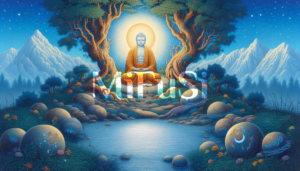
The seeking for an initiation
The seeking for an initiation Yeshes G. Yatso, a graduate monk from a prestigious Buddhist university, felt dissatisfied with his...

A Kidnapping Story with a Good Ending
A Kidnapping Story with a Good Ending (Câu chuyện bắt cóc có hậu by thànhtâm on 25/04/12, translated by ngocxuan,...
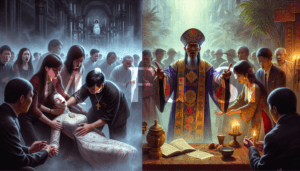
MY AUNT’S SPIRIT POSSESSION
MY AUNT'S SPIRIT POSSESSION (Quỷ nhập- Câu chuyện ôn tập lời dạy của Tổ, Thầy by Bạch Hạc on Wed...
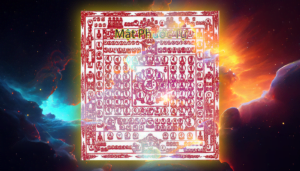
Chapter VI: I – Dharani – Mudra – Yantra – Mandala And Magic Circles
I. SIX LETTERS DHARANI KING SUTRA Shi Yi recorded in the Liang Dynasty Thich Vien Duc translation from Chinese to...

Story 12 – East-West Mystical Encounter
Story 12 -East-West Mystical Encounter Câu chuyện số 12 - Huyền bí Đông và Tây Phương by Hoctro-gia on 12...

RELIGIOUS VIEWS ON THE ORIGIN OF LIFE AND THE UNIVERSE
In attempting to study religion, people often get frustrated and have much to think about the many serious controversial religious...

JIANG ZIYA – FORTUNE TELLING
This chapter refers to the time when Ziya used his magic power to get rid of the five demons, and...
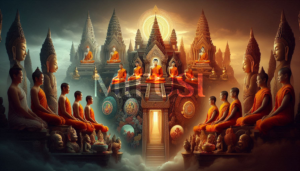
Story 4 – Chimdada’s quest for Magic
Story 4 - Chimdada's quest for Magic Câu chuyện số 4 - Chimdada cầu đạo by ThầyGià - 12 November...
